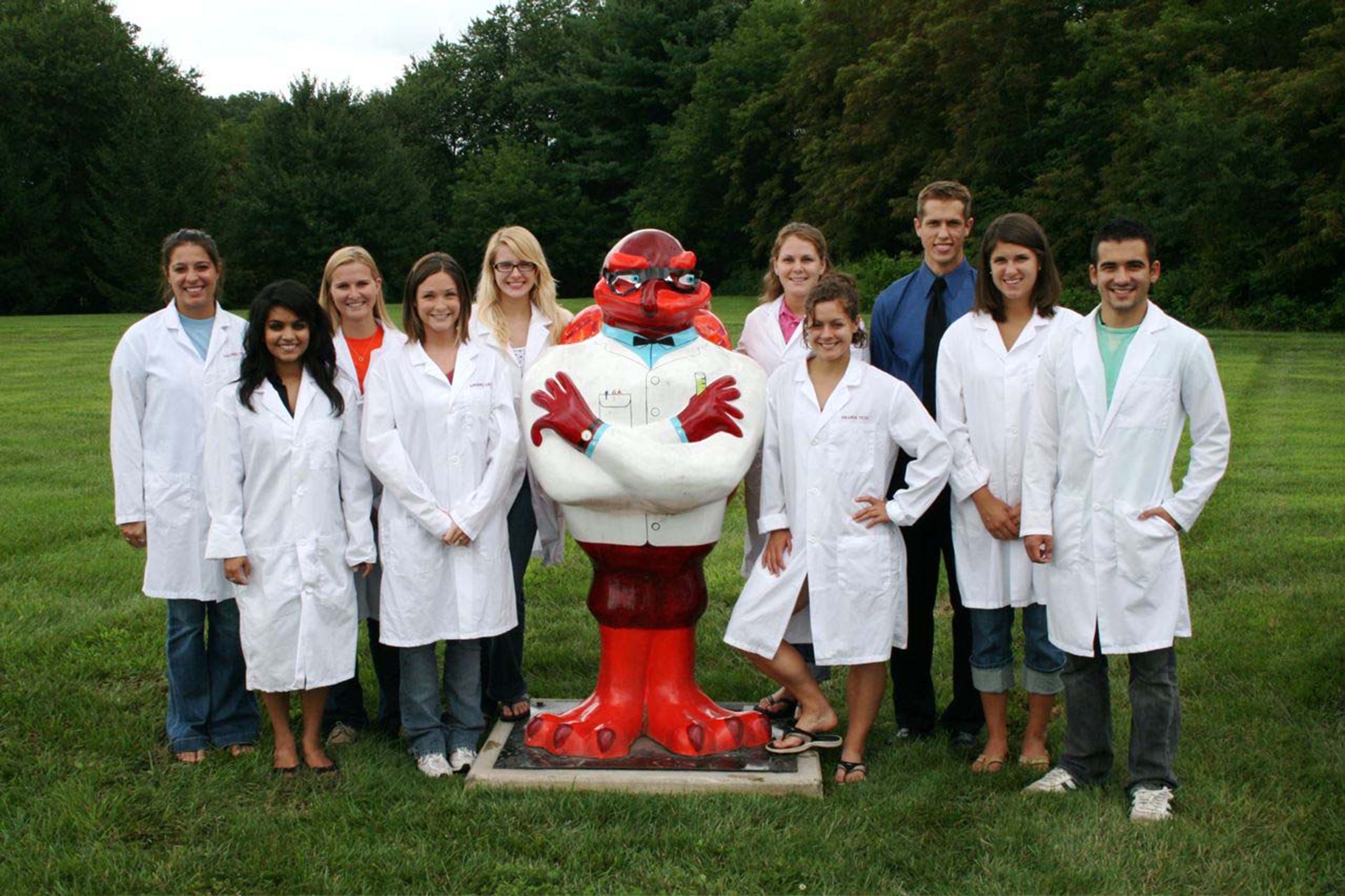Students develop skills and build relationships through summer undergraduate research programs

When Deborah Good was introduced to research as an undergraduate student at the State University of New York at Fredonia, she says it changed her life.
“The experience I had a an undergraduate influenced my career path and is responsible for what I am doing now,” said Good, an associate professor of human nutrition, foods, and exercise in the College of Agriculture and Life Sciences, and an affiliated researcher with the Fralin Life Science Institute.
Good works to bring that same opportunity to her students through the human nutrition, foods and exercise (HNFE) Summer Undergraduate Research Scholars Program - a curriculum recently touted in the North American Colleges and Teachers of Agriculture Journal.
The Scholar's program is 10 weeks long, during the summer and ends with a multidisciplinary symposium where students present posters and abstracts. In 2013, six students will be funded and the symposium will be held on July 31.
Currently the program is supported by the Fralin Life Science Institute and human nutrition, foods and exercise faculty members that contribute financial support from their own projects. At its start, the program was supported for three years by a United States Department of Agriculture Higher Education challenge grant, and one year in 2008, by the provost summer session grant.
Good joined Virginia Tech in 2006. In two years, with help from Christine McIntyre, an associate director of the university honors program, and Mary Marchant, a professor of agricultural and applied economics in the College of Agriculture and Life Sciences she was able to bring her dream to fruition with the Scholars program.
Good, McIntyre, and Marchant kick-started the program by securing the higher education challenge grant and provost summer session grant.
During the three-year grant period, 42 students assisted researchers in publishing eight scholarly articles and helped increase research participation in the department.
“The program has helped to establish an ongoing culture of undergraduate research across the department -- among the faculty and the student body,” said McIntyre.
“We developed a strong community centered approach on expanding our knowledge base and intellectual creativity,” said Ashley Bowers (formerly Zanko), a 2011 graduate of the human nutrition, foods and exercise. “The presentation and writing skills we learned are transferrable to any profession.”
Bowers is now at Liberty University pursuing a master’s degree in professional counseling.
“The students that worked with me had a lot of hands on experience with people in Virginia, whether it be asking them questions about their lifestyles, recruiting participants for weight loss programs, or testing out new programs with them—all of the students noted that their favorite part was working with the study participants and feeling like they were making a difference in their lives,” said Paul Estabrooks, a professor of human nutrition, foods, and exercise in the College of Agriculture and Life Sciences and former program mentor.
“I feel the scholars program was a huge reason I was accepted to such a competitive program. Being a scholar was a great opportunity to serve my community in one of the most unique and rewarding ways I ever thought possible!” said Alexis Pereira of Arlington, Texas, a 2010 human nutrition foods and exercise graduate and scholar. Pereira is now pursuing a doctorate in physical therapy at Marymount University.
Virginia Tech ranks among the top 5 percent of research universities in a survey conducted by the National Science Foundation. Part of this success is sustained by Virginia Tech’s continued commitment to undergraduate research programs.
To learn more about summer undergraduate research opportunities that help build mentor and peer relationships or resumes contact Tomalei Vess, director of Undergraduate Research.




